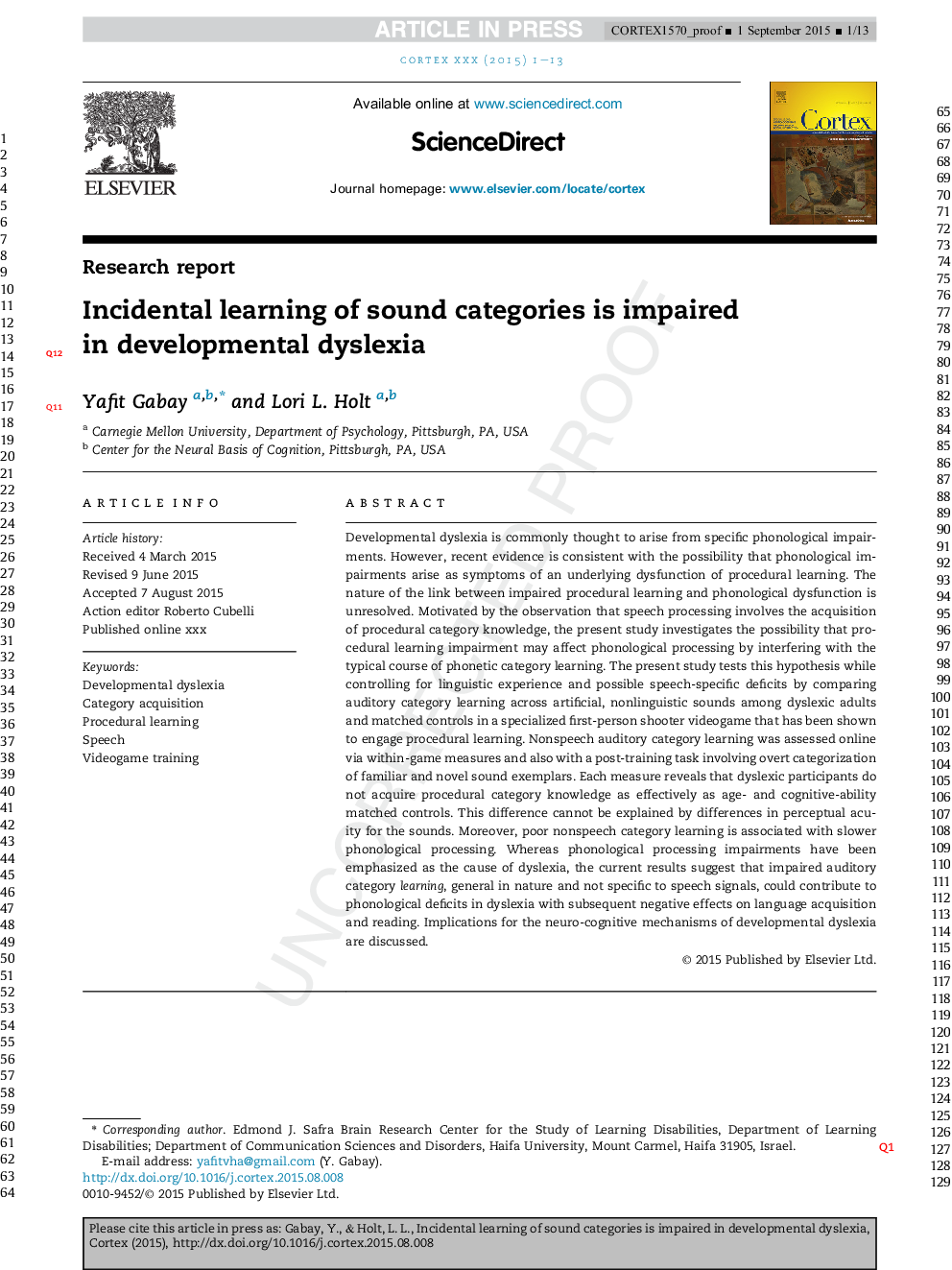| Article ID | Journal | Published Year | Pages | File Type |
|---|---|---|---|---|
| 7313589 | Cortex | 2015 | 13 Pages |
Abstract
Developmental dyslexia is commonly thought to arise from specific phonological impairments. However, recent evidence is consistent with the possibility that phonological impairments arise as symptoms of an underlying dysfunction of procedural learning. The nature of the link between impaired procedural learning and phonological dysfunction is unresolved. Motivated by the observation that speech processing involves the acquisition of procedural category knowledge, the present study investigates the possibility that procedural learning impairment may affect phonological processing by interfering with the typical course of phonetic category learning. The present study tests this hypothesis while controlling for linguistic experience and possible speech-specific deficits by comparing auditory category learning across artificial, nonlinguistic sounds among dyslexic adults and matched controls in a specialized first-person shooter videogame that has been shown to engage procedural learning. Nonspeech auditory category learning was assessed online via within-game measures and also with a post-training task involving overt categorization of familiar and novel sound exemplars. Each measure reveals that dyslexic participants do not acquire procedural category knowledge as effectively as age- and cognitive-ability matched controls. This difference cannot be explained by differences in perceptual acuity for the sounds. Moreover, poor nonspeech category learning is associated with slower phonological processing. Whereas phonological processing impairments have been emphasized as the cause of dyslexia, the current results suggest that impaired auditory category learning, general in nature and not specific to speech signals, could contribute to phonological deficits in dyslexia with subsequent negative effects on language acquisition and reading. Implications for the neuro-cognitive mechanisms of developmental dyslexia are discussed.
Related Topics
Life Sciences
Neuroscience
Behavioral Neuroscience
Authors
Yafit Gabay, Lori L. Holt,
